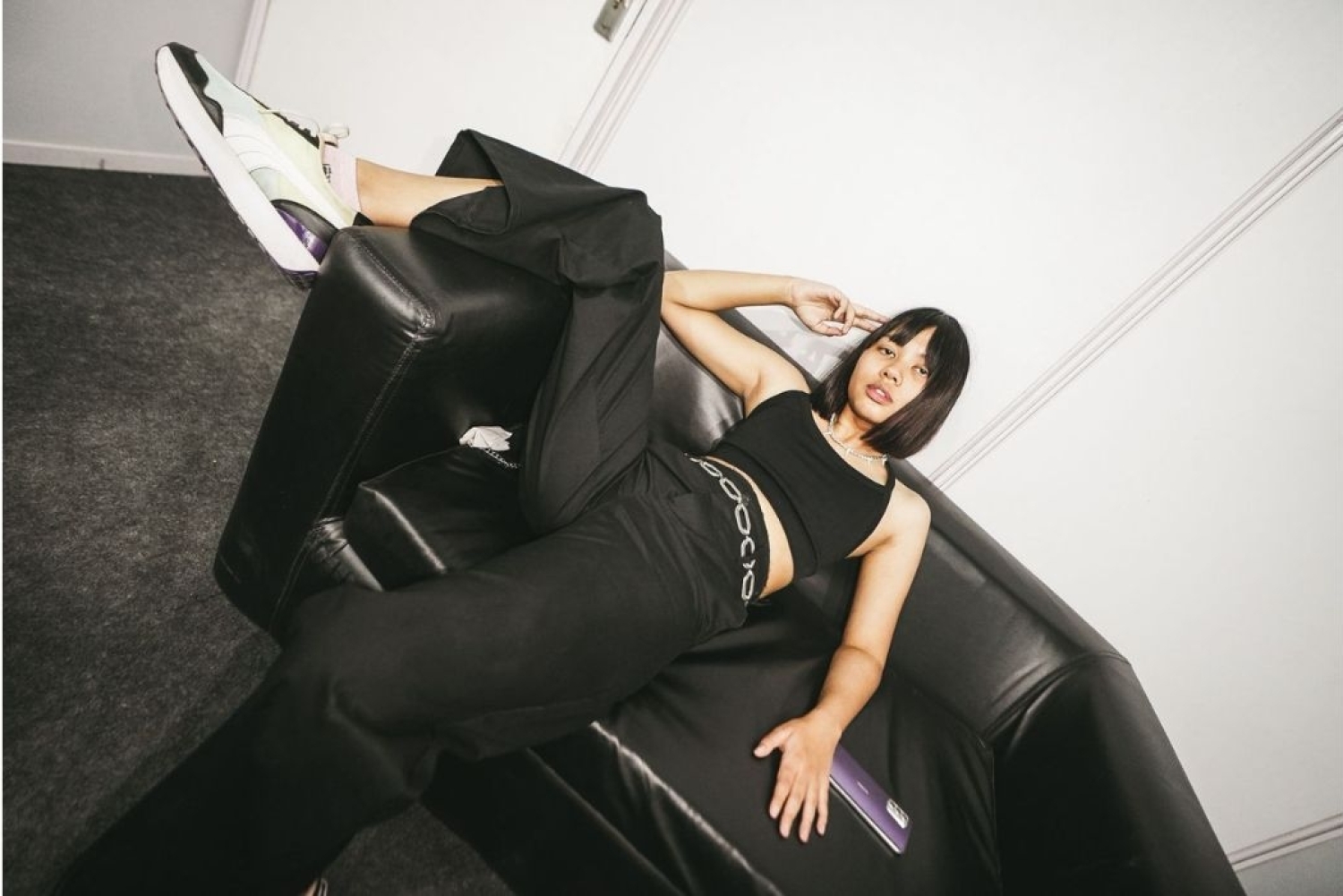

A mass of dangly, dramatic black hair covers most of her forehead and her round, deep eyes are magical pools with infinite depth. Her raps have razor-sharp lyrics with an even more upbeat melody. It is, let’s say, twenty first century world music — angry, irreverent, unapologetic and on occasion, giddy. And unlike a bevy of other celebrities who fall into politics après le fait, Daiaphi Lamare, who goes by the stage name Reble, lives and breathes it. Her songs are about aggression, women’s bodily autonomy, diversity, struggles and especially, her beleaguered North Eastern homeland. Refreshingly and sometimes worryingly, there is little that’s rehearsed about her politics — whether it finds its way into her music, as it often does, or an interview like this one.
For most artists, originality follows a phase of learning and often emulating others. Reble’s development as an artist and her transition towards finding her own voice was shaped by learning the type of music she didn’t want to create.
Starting with musicians from the North East, the artist acknowledges that it was a necessary experience. ‘I started out with some people from the North East but that was never my sound.’ Now at a stage of self-discovery, the artist is ready to release new sounds, aiming to produce ‘one of the best hip-hop EPs or singles from South Asia. I’m finally at a stage where I like the music I’ve been working on and I’m so ready for release’.
Rap music has long stood as a powerful medium for expressing social and political issues, shining a light on oppression and serving as a vital form of dissent. This genre transcends mere entertainment; it is a voice for the voiceless, a rallying cry for justice and a conduit for change. Reble loves that quality of her art. She holds it dear for its solid power. ‘I hope hip-hop never loses its spark. Yes, it has become commercial but I don’t hate that. I love that the whole world is getting a taste of hip-hop music. However, this form of music holds so much power like how Eminem said it out on a rap song called Sing for the Moment, ‘They say music can alter moods and talk to you, well, can it load a gun up for you and cock it too? Well, if it can, then the next time you assault a dude. Just tell the judge it was my fault and I’ll get sued.’ See, the thing about rap music is that it’s very influential and this is why it’s so effective when used to voice out and rebel.’
Entropy was Reble’s last proper EP with four songs but she has mixed feelings about it. ‘Entropy was a project on a tight budget. I literally had one lakh to make that entire thing and it sucks.’ Despite the negativity surrounding this project, it served as a valuable learning experience. But she has only grown from there. Like her recent single, Set It Off, in collaboration with Kim the Beloved, who is also from the North-East, is a standout track. With its technical prowess, relentless beats and impressive hook, Reble’s flow is unyielding, further solidifying her place in the rap scene. She is on a mission to put North East hip-hop on the global map.
To make that happen for rappers like Reble and talented others, supporting women rappers is more important than ever. Reble also spoke about this need, emphasising the call for better opportunities and recognition for talented female artists. ‘We need more shows, more brand deals and more opportunities in general. While some may use their gender as an excuse for subpar performance and to take advantage of available opportunities, there are many talented women creating exceptional music who deserve greater recognition and support. Currently, it seems that some hire individuals simply to fulfil gender diversity quotas while offering them little compensation. Meanwhile, truly talented artists struggle to receive fair pay as greedy middlemen prioritise paying less.’
As for what’s next, Reble confidently states, ‘You can expect me to put out what will go down as one of the best hip-hop music coming out of South Asia’.
Words Hansika Lohani
This article is from our May-November'25 Bookazine. Buy a copy here.